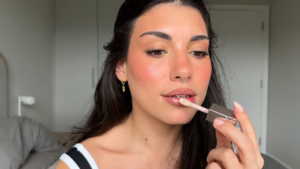Acne is a common skin condition that affects millions of people worldwide. While it is often associated with the teenage years, acne can also persist into adulthood and be influenced by hormonal imbalances. Hormones play a crucial role in the development of acne, as they can stimulate the production of oil in the skin, leading to clogged pores and breakouts. Understanding the role of hormones in acne is essential for effectively managing and treating this condition.
What Are Hormonal Imbalances? An Overview
Hormonal imbalances occur when there is an excess or deficiency of certain hormones in the body. This can disrupt the normal functioning of the endocrine system, which regulates various bodily processes, including the production of oil in the skin. Hormonal imbalances can be caused by a variety of factors, such as stress, diet, genetics, and certain medical conditions. When hormones are out of balance, it can lead to an increase in sebum production, inflammation, and the development of acne.
How Hormones Influence Skin Health
Hormones play a significant role in regulating the production of oil in the skin. Androgens, a group of male hormones that includes testosterone, are known to stimulate the sebaceous glands to produce more oil. This excess oil can mix with dead skin cells and bacteria, leading to clogged pores and the formation of acne lesions. In addition to androgens, other hormones, such as estrogen and progesterone, can also impact skin health. Imbalances in these hormones can contribute to the development of acne in both men and women.
The Role of Androgens in Acne Development
Androgens, particularly testosterone, are known to play a key role in the development of acne. These hormones stimulate the sebaceous glands to produce more oil, which can lead to clogged pores and breakouts. Androgens are present in both men and women, but they are typically higher in males. Women with hormonal imbalances, such as polycystic ovary syndrome (PCOS), may also experience an increase in androgens, leading to acne. Managing androgen levels through lifestyle changes, medications, and hormonal therapies can help reduce acne breakouts.
Hormonal Fluctuations During Menstrual Cycles and Their Impact on Acne
Women may experience hormonal fluctuations during their menstrual cycles, which can affect the severity of acne breakouts. Around the time of ovulation, estrogen levels drop, while androgen levels rise, leading to an increase in oil production and the development of acne lesions. This hormonal shift can cause premenstrual acne flare-ups, which typically occur a week before menstruation. Understanding these hormonal changes and their impact on acne can help women manage their skin health more effectively.
Acne and Puberty: Understanding Adolescent Hormonal Changes
During puberty, both boys and girls experience significant hormonal changes that can lead to acne breakouts. The surge in androgens during this time stimulates the sebaceous glands to produce more oil, which can clog pores and result in acne lesions. Adolescents may also experience hormonal imbalances due to genetics, diet, and lifestyle factors, further exacerbating acne. It is essential for teenagers to establish a proper skincare routine and seek treatment from a dermatologist to manage hormonal acne effectively.
Effective Treatments for Hormonal Acne
There are several treatment options available for hormonal acne, depending on the severity of the condition. Topical medications, such as retinoids and benzoyl peroxide, can help reduce inflammation and unclog pores. Oral medications, such as antibiotics and hormonal therapies, may be prescribed for more severe cases of hormonal acne. In some instances, procedures like chemical peels and laser therapy can also be beneficial in treating acne. It is essential to consult with a dermatologist to determine the best course of treatment for hormonal acne.
Lifestyle and Dietary Changes to Manage Hormonal Imbalances
In addition to medical treatments, lifestyle and dietary changes can also help manage hormonal imbalances and reduce acne breakouts. Eating a balanced diet rich in fruits, vegetables, and whole grains can help regulate hormone levels and improve skin health. Avoiding processed foods, sugar, and dairy products, which can exacerbate hormonal imbalances, may also be beneficial. Engaging in regular exercise, managing stress, and getting an adequate amount of sleep can further support hormonal balance and reduce acne flare-ups. By incorporating these lifestyle changes into their daily routine, individuals can effectively manage hormonal acne and improve their overall skin health.








